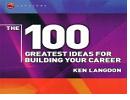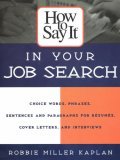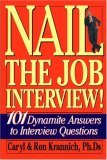Career Development
Like all goal setting, one of the first tasks for career development is to ask your self “What do you really want?” And this is particularly important with your career – after all, you may end up working 8+ hours per day, so you want to enjoy it!
It’s also most likely going to be your main source of income, so you ideally want to find a career that you’re passionate about, and that pays well enough for you to have a comfortable life.
And remember that a career isn’t just a job. A job is just something you do, your career is your life – so treat it the same way you would treat any other aspect of your life. Nurture it, develop it and celebrate it!
Keep reading to find out how to achieve your career nirvana.
The 7 P's of Career Development
We’ve all heard of the 7 P’s of planning – Prior Planning and Preparation Prevents P$#% Poor Performance. Well, these are the 7 P’s of career development:
Purpose – what is your purpose in life? Know yourself, be yourself and value yourself. And most importantly, invest in yourself and lever off your personal strengths to launch into your career.
A career built off your strengths will develop more rapidly than a career that demands you use your weaknesses. You can still improve on your weaknesses, but use your strengths as a catalyst for success!
Passion – what is your passion? Find it and live it. And passion isn’t power, possessions or prestige, it’s about ‘being’ and ‘doing’. And if you do something you love, you’ll never work a day in your life – but you’ll still be rewarded with a successful career and an enviable life.
You want to be able to say, “Take this job and love it!”
Perspective – it’s all about attitude. As Zig Ziglar puts it, “It’s your attitude, not your aptitude, that determines your altitude.
The brain is an amazing thing and you can ‘trick’ it into making you succeed just by the power of positive thinking. Many successful people swear by the use of positive affirmations or self-hypnosis as a way of training your brain for success.
You have probably heard of the placebo effect – an example of this is when a doctor gives a patient sugar pills, but tells them it’s a cure for their ailment. And what do you know, the patient gets better! And no, sugar isn’t the cure-all solution for all ailments – this is an example of how your brain can take control of your body just by the power of positive thinking. If your brain expects something to happen, it happens.
So if you want to be successful, expect success - and it will come.
Planning – of course, nothing comes if you don’t prepare a plan. Afterall, the end result of any goal setting process is a step-by-step plan of how you are going to achieve your goal. It’s the same for career development goals.
And include goals that will stretch you and get you out of that comfort zone, as well as the nice easy to achieve goals that keep you heading in the right direction and give you those little wins along the way.
But it is the ‘stretch’ goals that will make the difference between a good career and an outstanding career. Take risks and don’t be afraid to try something new.
Performance - you need to perform. You need to be the best you can be, by keeping yourself skilled-up with appropriate training and delivering on your commitments.
Thrive on performance reviews and project specific feedback and use this information to leap-frog your career, by levering off your strengths and identifying relevant weaknesses that need work.
Perseverance and Persistence – many of the world’s inspirational success stories are examples of perseverance in the face of adversity. Albert Einstein, one of the greatest minds in modern times, was told by is school teacher that he’d never amount to anything. Read the tab on 'Successful People' for other tales of triumph through persistence.
Don’t give up, just because the road ahead of you isn’t well lit or is taking you into unfamiliar territory. Take the detours around those roadblocks if they still keep you heading in the right direction, but also know when you’ve taken a wrong turn and don’t be afraid to ask for directions.
Priorities - careers can be made or lost depending on how you prioritize your work tasks as well as your career development tasks. Avoid tasks that are just not important to do, and prioritise tasks that are important first.
For more ‘how to’ information on the above, read through the “Life Skills” tab on the NavBar – it’s full of useful skills that everyone needs to make the most of their career.
But what career is for you?
Career development is about working out what you really want and how to get there – and for most people it is a continuous and life long process.
But before you can work out what career is best for you, ask yourself what’s most important for you:
- What do you enjoy doing and what are you good at? What are you doing when you are most happy?
- Do you want to make a lot of money to fund a lavish life, or are you just happy earning enough to live comfortably? Be honest now!
- Do you want to be challenged and stretched, or would you prefer a career where you can just plod along at your own pace?
- Do you want responsibility and leadership roles, or does this thought scare you?
- Do you want a job where you need to take risks, or do you prefer stability and routine?
- Do you like working in the big city, or do you prefer the lifestyle of a small regional town? Do you have a preference for seaside living, or are you more of a bush and mountains kind of person?
- Do you like working with people, kids or animals – or just prefer working by yourself?
- Do you work well in a team, or do you work better as your own boss?
- Do you like the concept of shift work or do you prefer working 9 to 5?
To help answer these questions, just visualise yourself in your ideal job, doing what you do and enjoy best. And then describe everything about this vision – what are you doing? Where are you? Who else is there? What time of day is it?
And look at your interests, abilities, personal strengths and existing skills and then see what careers may or may not suit.
From this activity, you can start to hone in on the 5WH of your career development - that is, the what, why, where, when, who and how of setting your career development goals.
- What – what do you want and what is your true passion?
- Why – the most important factor in any goal setting is the “why”, and this needs to be enough to make you love your career.
- Where – where do you want to be based for your career and does this limit your opportunities? You may love the laid back country lifestyle (don’t we all) but this may not suit all jobs.
- When – when do you prefer to work and how does this affect your career choice? Is shift work OK, or would you prefer a steady 9 to 5, five days per week? Do you want a part time or full time job for your career?
- Who – who do you want to work with? Are you good with kids or animals, or are you better at relating with adults?
- How – how do you achieve your ideal career? What gaps are there between where you are and where you want to be, and how can you close those gaps?
You should start to see some common themes running through your mind map – perhaps you’re good with people, or maybe you’re a good problem solver.
The important thing is to find the thing that you are most passionate about – what floats your boat and makes you happy? After all, your career needs to reflect you and your passions – not the other way around. It’s important to be you, and to do that you need to know who you are.
The best thing about having the 5WH for your career, is that you can use this as a checklist for evaluating job prospects and opportunities. Check out the 5WH templates in the ToolBOX under the section on “Career Tools”.
The Successful Candidate
|
Having interpreted over 75 of the most frequent job requirements, this book explains how you can demonstrate that you have what the employer is looking for. Recruitment ads seem to have a language all their own. The people who write them know what they are looking for, but do you? |
Career development gaps
Of course, if you’re just starting off on your career or still thinking about which direction to chose, there are probably some gaps between what you want to achieve with your career and where you are now.
It’s important to identify these gaps and develop a strategy to start bridging them.
Perhaps it’s just a matter of getting some good work experience in a particular area, or perhaps you need to do some further skills training. Whatever the measures are, these become your career goals for your career development.
And like all goals, make sure they are SMART [see the section on “How to Set Goals” to find out more] and keep you moving in the right direction towards your dream career.
It can also pay to get professional career development advice - getting the right advice at the right time can mean the difference between a good career and a brilliant career.
How to Say it in Your Job Search
|
Kaplan, one of America's leading career experts, shows readers how to communicate their skills, strengths, & qualifications quickly & distinctively in their resumes, cover letters, & interviews. |
Nail the Job Interview
|
Using an employer-centered approach, this book shows how to nail the job interview by being prepared to respond well to critical interview questions. Outlining 101 questions and corresponding answers, it shows how to anticipate questions, develop thoughtful and compelling answers, focus on accomplishments, ask intelligent questions, and handle the interview situation with ease and confidence. |
Tools that can help
The FREE Life Planning Program offered on this site in the ToolBOX includes 3 essential tools for career development – if you don’t use the whole Life Planning Program, that’s fine – but at least look at these 3 tools to help with your career goals:
Behaviour Profile and the DOPE Test: we all act differently to different things. This is a natural behaviour that is unique to you and affects how you view success and failure and also affects what careers you may or may not be good at. Find out what your natural behaviour tendency is and how this will affect your career development.
Multiple Intelligences and the HGMI Test: we all like and are good at different things, and this affects what goals we set. Find out what your interests are. No this is not an IQ test, but rather an assessment of what type of things interest you and therefore what your ‘natural’ intelligence or aptitude is. Use this as a guide to what careers will suit you better than others.
Personal SWOT Analysis: we all have strengths and weaknesses which we can turn into opportunities, or have turn into threats to our career. Use the personal SWOT analysis process to identify these and in particular, identify your strengths that will launch your career.
There is also a 5WH template in the ToolBOX under the section on “Career Tools” to help you document your career development process, and a second 5WH template you can use to evaluate job prospects.
And of course, one of the best ways to do this career development process is to Mind Map it! Map every aspect that you think may be relevant to choosing your career – what you like, what you don’t like, what you’re good at, what you’re not so good at, your existing qualifications and training, and so on – until you get a picture of what makes you, you!
[Find out how to do a Mind Map under Decision Making skills section of the “Life Skills” tab on the NavBar].




